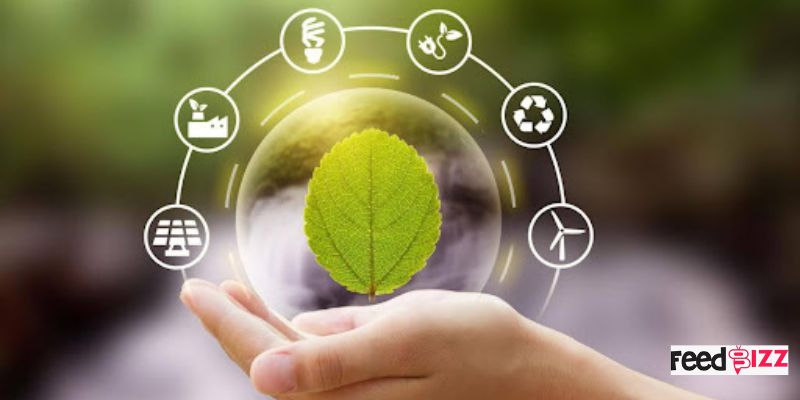Our environment’s health is greatly influenced by waste management. Adopting appropriate garbage disposal and management strategies is crucial since the variety of waste generated has expanded tremendously as industries and populations have grown. Although waste disposal processes and services like skip hire Altrincham are intended to lessen the adverse effects of garbage on the environment, the techniques themselves may have a positive or negative effect on the globe, subject to how well they work.
Waste Management: What Is It?
The process & handling of items which can’t be reused or used in a desired manner is known as waste management. Everything from common household objects to industrial garbage may come under this category. Both immediately and over time, waste management might have a big effect on the environment. Given the kind of trash being managed, waste management may trigger a wide range of environmental effects.
For instance, improper management of organic waste may prove especially dangerous. Organic waste can produce methane gas, a powerful greenhouse gas, if it is not managed. On the other hand, by producing new resources, recycling and composting may offset the negative effects of trash on the environment. All things considered, waste management affects the environment greatly. Making conclusions regarding how to handle our garbage requires a thorough consideration of all relevant issues.
Technology’s Place in Ecological Waste Management
Technological advancements have greatly increased the effectiveness and environmental impact of waste management systems. Fuel use and carbon emissions from garbage pickup trucks are decreased by smart waste collection systems that employ sensors to optimise collection routes & monitor bin levels. trash-to-energy (WTE) technologies reduce trash whilst offering a viable alternative to landfilling by turning garbage into heat or electricity.
Nevertheless, the kind of waste being processed & the emissions control measures in place determine how beneficial WTE technologies are for the natural world. For instance, burning non-recyclable waste might provide energy, but if improperly handled, it may also discharge toxins. Maintaining sustainable waste management methods requires weighing the advantages and disadvantages of various technologies.
The Value of Participation and Public Awareness
For waste management systems to be successful, public engagement is essential. The environmental impact of garbage is greatly lessened in communities which actively take part in recycling, composting, & waste reduction initiatives. Adopting sustainable behaviours, like reducing the use of single-use plastics, appropriately sorting waste, and promoting eco-friendly items, can be facilitated by education campaigns & incentives.
Even the most sophisticated waste management systems can’t reach their full effectiveness without collaboration and public awareness. Individual waste management mistakes, including contaminating recyclables or improperly disposing of hazardous trash, can make recycling programs and various other activities less successful.
Benefits Of Excellent Waste Management:
But how precisely can effective waste management benefit the environment?
Improving Fertility and Soil Health
In addition to reducing landfill usage, composting organic matter creates compost that is high in nutrients. By enhancing soil fertility, moisture retention, & structure, this compost promotes healthier crops along with more environmentally friendly agricultural methods. We build an increasingly robust agricultural system by simply enriching our soil.
Preserving Water Resources
The preservation of our water resources depends on efficient waste management. Water pollution is less likely when animal excrement is handled properly, and runoff preventative measures are implemented. By preventing soil erosion & conserving water, our sustainable irrigation techniques make certain that our farming operations don’t negatively impact nearby water bodies.
Reducing the Impact of Climate Change
Climate change mitigation is greatly aided by our waste management initiatives. We reduce greenhouse gas emissions from organic matter decomposing in landfills by encouraging recycling & minimising trash. By storing carbon in the soil, composting helps us meet our worldwide environmental targets and offset our carbon impact.
Ecosystem Health and Biodiversity
The biodiversity and ecosystem functioning in the area are enhanced by our waste management techniques. We save ecosystems & wildlife by adopting organic farming practices and reducing the use of dangerous pesticides. Resources are recycled and reused to support biodiversity and preserve environmental equilibrium.
Economic and Community Advantages
Effective waste management has significant positive effects on the community & the economy. Our farming activities are more sustainable and generate financial benefits when waste disposal expenses are decreased and the use of resources is increased. By creating an environmentally sound and healthy environment, our environmental stewardship promotes local livelihoods as well as builds community trust.
Conclusion
Nature feels both positive and negative results when people manage their waste. Effective ways to handle waste cover everything from recycling and composting to using energy from garbage like fuel, all helping to cut pollution, save materials, and fight climate change. Despite these positive programs, many environmental and operational problems persist.
A mix of public involvement, policy execution, and technical innovation is needed to address these issues. Societies may reduce the detrimental effects of garbage and move towards a more sustainable future by making investments in environmentally friendly waste management equipment and encouraging ethical waste disposal procedures.









